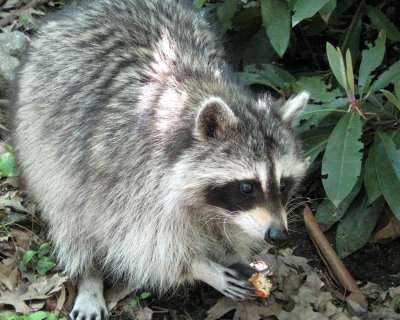With the weather FINALLY getting warmer, you and your dog are probably itching to get back out into the canine social scene, whether it is a walk in the park or a walk around the neighborhood. We love to see dogs and their people outside getting exercise. We also know that many cats are now venturing back outside to enjoy a nap in the warm sun. But getting back outside can present many health-related challenges for our pets. Let’s take a look at just three of these challenges.
Rabies: Rabies is a DEADLY virus with no known cure once symptoms appear. The only way to protect your pet and family from rabies is to make sure your dog, cat or ferret is up to date on its rabies vaccine at all times.
 Many pet owners take advantage of the local rabies clinics held by the Health Department. When this is the case, please bring in a copy of your Rabies Certificate so we can add this information into your pet’s permanent medical history. Please be aware, when rabies vaccines are given through the county clinics, you WILL NOT receive a reminder from our clinic advising you that the vaccine is due. So, please take this time to check your pet’s most recent Rabies Certificate (the date on the rabies tag is the year in which your pet was vaccinated – not the expiration date). Although in Frederick County rabies is most common in wildlife such as fox, raccoons, and skunks, over the past several years it has also been seen in pets and other domestic animals. From 2000 to 2010, there were 474 laboratory-confirmed cases of animal rabies in Frederick County (mostly raccoons), the second-highest figure in Maryland after Montgomery County, which recorded 619 cases during the same period.
Many pet owners take advantage of the local rabies clinics held by the Health Department. When this is the case, please bring in a copy of your Rabies Certificate so we can add this information into your pet’s permanent medical history. Please be aware, when rabies vaccines are given through the county clinics, you WILL NOT receive a reminder from our clinic advising you that the vaccine is due. So, please take this time to check your pet’s most recent Rabies Certificate (the date on the rabies tag is the year in which your pet was vaccinated – not the expiration date). Although in Frederick County rabies is most common in wildlife such as fox, raccoons, and skunks, over the past several years it has also been seen in pets and other domestic animals. From 2000 to 2010, there were 474 laboratory-confirmed cases of animal rabies in Frederick County (mostly raccoons), the second-highest figure in Maryland after Montgomery County, which recorded 619 cases during the same period.
Intestinal Parasites: Anywhere that you have multiple dogs romping and defecating in a concentrated area (dog parks and neighborhood fields) or where wildlife lives (your backyard, farm fields, woodlands, streams), there will be a high incidence of intestinal parasites. Infections of roundworms and whipworms require ingestion of fecal material or rodents. Hookworm infections can result from the skin coming in contact with a contaminated area. Giardia infections are the result of pets drinking contaminated water (puddles, streams, lakes).
Most intestinal parasites are microscopic (too small to see without a microscope) and may not present symptoms until the animal has a heavy or critical infection. Just because you don’t “see” anything and your pet is acting “fine”, doesn’t mean they are parasite free. Even the inside cat is at risk of intestinal parasite infections. (Remember that mouse Felix caught and ate last Christmas? YUK).
If we have not tested your pet’s stool sample in the last year for parasites, now is a great time to have it done. For those animals at greater risk of parasite exposure, we may recommend monthly dewormings and testing the fecal sample more often. Talk to one of our doctors if you would like more information on reducing your pet’s risk of intestinal parasite infections.
Bordetella (K9 Kennel Cough): There are many virus strains and types of bacteria that can cause an upper respiratory infection in your pet. Bordetella, or kennel cough, is caused by one of these bacteria. Although vaccinating against Bordetella will not protect against the other viruses and bacteriae, we do recommend it for those dogs that spend a lot of time socializing with other dogs of unknown history or who will be boarding in public kennels.
Feline Leukemia Virus (FELV): For those cats that are allowed outdoors, we strongly recommend they be vaccinated against FELV. The Feline Leukemia Virus is a deadly disease which is highly contagious among the feline population. The average life-span of a cat with FELV is only 2 years. Please talk with our staff to determine if your cat is at risk for exposure to FELV and, therefore, a good candidate for the FELV vaccine.



